
- This event has passed.
Virtual: 2020 AAD Sisco Memorial Forum, ‘Diplomacy in a World of Transnational Crisis’
September 14, 2020 at 6:00 PM - 7:45 PM
The American Academy of Diplomacy, in collaboration with the Office of the Vice Provost for Global Affairs at the University of North Carolina at Chapel Hill, will host its annual Joseph J. Sisco Memorial Forum via live stream at 6 p.m. EDT on Sept. 14, 2020.
The forum, “Diplomacy in a World of Transnational Crisis,” will examine large-scale policy and diplomacy implications of transnational issues, such as COVID-19.
The event features the following:
Keynote address by Ambassador Thomas Pickering, who served as ambassador under six U.S. presidents in a distinguished diplomatic career spanning five decades;
Opening remarks by Ambassador Ronald Neumann, president of the AAD and former U.S. ambassador to Algeria, Bahrain and Afghanistan; and
A panel discussion featuring:
+ Ambassador Kathleen Stephens, president and CEO of the Korea Economic Institute of America (KEIA) and former U.S. ambassador to South Korea
+ Dr. J. Stephen Morrison, senior vice president and director of the Global Health Policy Center at the Center for Strategic and International Studies
+ Ambassador Barbara Stephenson, vice provost for global affairs and chief global officer at UNC-Chapel Hill and former U.S. ambassador
The American Academy of Diplomacy is an independent, non-profit association of over 300 former senior US ambassadors and high-level government officials who have served with distinction in international affairs. The Academy’s mission is to strengthen American diplomacy through outreach programs, awards, podcasts, research, and public discussions, like the Joseph J. Sisco Memorial Forum.
The forum will be live streamed via Zoom. Please register in advance to receive a Zoom link.
This programming is organized by the American Academy of Diplomacy and the Office of the Vice Provost for Global Affairs at UNC-Chapel Hill, with support from the Sisco Family Charitable Fund. Additional support provided by the UNC-Chapel Hill College of Arts and Sciences, including the African Studies Center, Carolina Asia Center; Center for Middle East and Islamic Studies; Center for European Studies; Center for Slavic, Eurasian and East European Studies; Curriculum in Global Studies; Curriculum in Peace, War and Defense; Department of Political Science; Department of Public Policy; Institute for the Study of the Americas; Study Abroad Office and the Global Research Institute.
ABOUT THE SPEAKERS
Ambassador Thomas R. Pickering
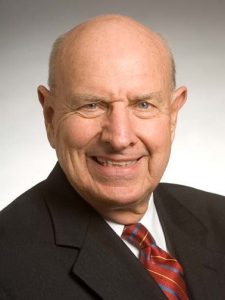
Ambassador Thomas R. Pickering served as the U.S. ambassador and representative to the United Nations in New York under former President George H. W. Bush. Pickering led the U.S. effort to build a global coalition in the U.N. Security Council during and after the first Gulf War. He also served as the U.S. Under Secretary of State for Political Affairs under former President Bill Clinton.
Pickering holds the personal rank of career ambassador, the highest in the U.S. foreign service. In a diplomatic career spanning five decades, he was U.S. ambassador to the Russia, India, Israel, El Salvador, Nigeria and Jordan. He also served on assignments in Zanzibar and Dar es Salaam, Tanzania. In Washington, Pickering was Assistant Secretary of State for the Bureau of Oceans, Environmental and Scientific Affairs, Executive Secretary of the Department of State and special assistant to former Secretaries of State William Rogers and Henry A. Kissinger.
After government service, Pickering was the senior vice president, international relations, of Boeing Co. In this role, he was responsible for Boeing’s relations with foreign governments and the company’s transition to a global organization. Prior, he was briefly the president of the Eurasia Foundation, a Washington-based organization that makes small grants and loans in the states of the former Soviet Union.
In 2012, Pickering chaired the Benghazi Accountability Review Board at the U.S. Department of State.
In 1956, Pickering entered active duty in the U.S. Navy, and later served in the Naval Reserve to the grade of lieutenant commander. He was assigned to the Bureau of Intelligence and Research of the State Department, later to the Arms Control and Disarmament Agency, and served in Geneva as political adviser to the U.S. Delegation to the 18-Nation Disarmament Conference.
Pickering serves as a distinguished senior fellow at the Brookings Institution. He is active in a number of not-for-profit boards, including the International Crisis Group, where he was previously chairman and co-chairman of the board; the current chairman of the boards of the American Academy of Diplomacy, the Washington Institute of Foreign Affairs and the Institute for the Study of Diplomacy at Georgetown University. He has been a trustee at the Council on Foreign Relations and the Aspen Institute, among other organizations. Pickering maintains close, high-level contacts in all the countries in which he has served, as well as in Europe.
He received a bachelor’s degree, cum laude, with high honors in history, from Bowdoin College. Pickering received a master’s degree from the Fletcher School of Law and Diplomacy at Tufts University. He received a second master’s degree while a Fulbright Scholar at the University of Melbourne in Australia.. Pickering received an honorary doctor of law degree from Bowdoin College, and has received similar honors from 12 other universities. He received the Distinguished Presidential Award and the Department of State’s highest award, the Distinguished Service Award. Pickering is a member of the Council on Foreign Relations and the International Institute of Strategic Studies. He speaks French, Spanish and Swahili and has some fluency in Arabic, Hebrew and Russian.
Ambassador Ronald E. Neumann
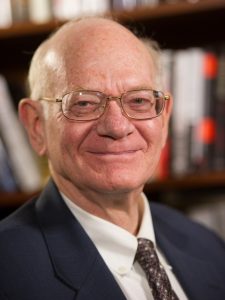
Formerly Deputy Assistant Secretary of State, Ronald E. Neumann served three times as ambassador to Algeria, Bahrain and finally to Afghanistan from July 2005 to April 2007. Before Afghanistan, Neumann, a career member of the senior foreign service, served in Baghdad from February 2004 with the Coalition Provisional Authority and then as Embassy Baghdad’s political/military liaison with the Multinational Command, where he was deeply involved in coordinating the political part of military actions.
Prior to working in Iraq, he was ambassador in Manama, Bahrain (2001-2004), deputy assistant secretary in the Bureau of Near East Affairs (1997-2000) with responsibility for North Africa and the Arabian Peninsula, and ambassador to Algeria (1994 to 1997). He was director of the Office of Northern Gulf Affairs (Iran and Iraq; 1991 to 1994). Earlier in his career, he was deputy chief of Mission in Abu Dhabi, United Arab Emirates, and in Sanaa in Yemen, principal officer in Tabriz, Iran and economic/commercial officer in Dakar, Senegal. His previous Washington assignments include service as Jordan desk officer, staff assistant in the Middle East (NEA) Bureau and political officer in the Office of Southern European Affairs.
Neumann is the author of a memoir, “Three Embassies, Four Wars: a personal memoir” (2017) and “The Other War: Winning and Losing in Afghanistan” (Potomac Press, 2009), a book on his time in Afghanistan. He has returned to Afghanistan repeatedly and is the author of a number of monographs, articles and editorials. His writings have focused most heavily on Afghanistan, stabilization and Bahrain. At the American Academy of Diplomacy (AAD) he has focused particularly on efforts to maintain adequate State and USAID budgets and staffing and upgrade professional formation to enable these institutions to carry out their responsibilities. Neumann is on the advisory committee of a nonprofit working in Afghanistan, the School of Leadership, Afghanistan (SOLA). He is on the board of the Middle East Policy Council.
Neumann speaks some Arabic and Dari, as well as French. He received State Department Superior Honor Awards in 1993 and 1990. He was an Army infantry officer in Vietnam and holds a Bronze Star, Army Commendation Medal and Combat Infantry Badge. In Baghdad, he was awarded the Army Outstanding Civilian Service Medal. In 2018, he was awarded the American Foreign Service Association’s award for Lifetime Contributions to American Diplomacy. He earned a bachelor’s degree in history and a master’s in political science from the University of California at Riverside.
Ambassador Kathleen Stephens
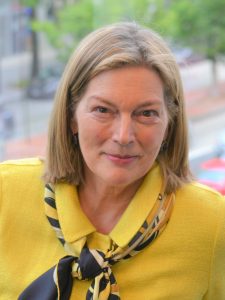
Former Ambassador Kathleen Stephens is president and CEO of the Korea Economic Institute of America (KEI). A former U.S. foreign service officer, she served as U.S. ambassador to South Korea from 2008 to 2011. Her other overseas assignments included postings to China, former Yugoslavia, Portugal, Northern Ireland, where she was U.S. consul general in Belfast during the negotiations culminating in the 1998 Good Friday Agreement, and India, where she was U.S. charge ‘d affaires (2014-2015).
Stephens also served in a number of policy positions in Washington, D.C., at the Department of State and the White House. These included Acting Under Secretary of State for Public Diplomacy and Public Affairs (2012), Principal Deputy Assistant Secretary of State for East Asian and Pacific Affairs (2005-2007), Deputy Assistant Secretary of State for European and Eurasian Affairs (2003-2005), and the National Security Council director for European Affairs under the Clinton Administration..
She was a William J. Perry Fellow for Korea at Stanford University between 2015 and 2018. She is currently board chair of The Korea Society, a Mansfield Foundation Distinguished Fellow, Pacific Century Institute board chair, and vice chair of the board of trustees for The Asia Foundation.
Dr. J. Stephen Morrison
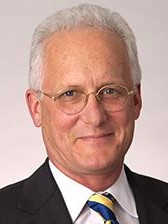 Stephen Morrison is a senior vice president at the Center for Strategic and International Studies (CSIS), where he has directed the Global Health Policy Center since he founded it in September 2008. From 2000 until 2008, he directed the CSIS Africa Program, while also launching the CSIS Task Force on HIV/AIDS (2001-2007), co-chaired by former Senators John Kerry and Bill Frist. During the Clinton administration, he served on the Policy Planning Staff, under former Secretaries Warren Christopher and Madeleine Albright, and prior to that, conceptualized and founded the U.S. Agency for International Development (USAID) Office of Transition Initiatives.
Stephen Morrison is a senior vice president at the Center for Strategic and International Studies (CSIS), where he has directed the Global Health Policy Center since he founded it in September 2008. From 2000 until 2008, he directed the CSIS Africa Program, while also launching the CSIS Task Force on HIV/AIDS (2001-2007), co-chaired by former Senators John Kerry and Bill Frist. During the Clinton administration, he served on the Policy Planning Staff, under former Secretaries Warren Christopher and Madeleine Albright, and prior to that, conceptualized and founded the U.S. Agency for International Development (USAID) Office of Transition Initiatives.
He served in the U.S. Embassy in Addis Ababa 1992-1993, directing its transitional work promoting democracy and good governance. From 1987-1991, he was senior staff on the House Foreign Affairs Africa Subcommittee, chaired by Rep. Howard Wolpe.
In recent years at CSIS, Morrison has directed several high-level commissions, most notably the CSIS Commission on Strengthening America’s Health Security (2018-present), and the CSIS Task Force on Women’s and Family Health (2015-2017.) He is the author of diverse analytic reports and commentaries, a frequent voice on global health, U.S. foreign policy and international security, across a range of media. His hour-long feature documentary film, “The New Barbarianism” (2017) focuses on the surge of violence against the health sector in over two dozen conflicts. A new feature length documentary, “The Pandemic Paradox,” on the course of HIV/AIDS over the past 40 years and the risks of regression, compounded by the coronavirus pandemic, will be released in the summer of 2020.
Morrison received his doctorate in political science at the University of Wisconsin-Madison. He is a graduate, magna cum laude, of Yale College.
Ambassador Barbara J. Stephenson
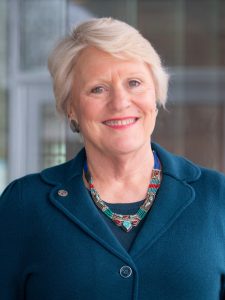
Barbara J. Stephenson is vice provost for global affairs and chief global officer at the University of North Carolina at Chapel Hill. She is a distinguished diplomat, former U.S. ambassador, international leader and prior dean of the Leadership and Management School at the Foreign Service Institute. She leads UNC Global and advances a pan-university global strategy to enhance UNC-Chapel Hill’s global reach, impact and reputation.
Stephenson is an advocate for the role of higher education in constructively addressing complex global challenges, and she has extensive experience in collaborating across societies and geographies. She has prioritized partnerships as a way of furthering global education experiences for students and advancing international scholarship and research.
Previously, Stephenson was president of the American Foreign Service Association from 2015-2019 and was a U.S. Foreign Service officer for over 30 years. She was a principal advocate for diplomacy, working closely with Congress, the media and globally engaged strategic partners.
At the Foreign Service Institute, Stephenson launched the Culture of Leadership Roundtable to improve leadership across the State Department and in U.S. embassies around the world. In 2008, she was appointed U.S. Ambassador to Panama and later became the first woman to serve as deputy ambassador and acting ambassador at the U.S. Embassy in London.
As deputy senior advisor to the secretary and deputy coordinator for Iraq (2006-2008), she was recognized with the State Department’s Distinguished Honor Award for developing and implementing the civilian surge, the largest deployment of civilians to a war zone since the Vietnam War. She coordinated across federal agencies and the U.S. Congress to unite stakeholders behind a mission to reverse the spiral into sectarian violence by strengthening governance in Iraq.
From 2001-2004, as the American Consul General in Belfast, Northern Ireland, she helped renew support for the Good Friday Agreement that brought an end to decades of violence. As Consul General and Chief of Mission in Curaçao (1998-2001), she won support from local and Dutch officials to establish two U.S. Air Force bases to support Plan Colombia.
Earlier in her career, Stephenson served as special assistant to Under Secretary for Political Affairs Thomas Pickering, covering European affairs, including the war-torn Balkans. Other assignments have included desk officer for the UK, political-military officer in South Africa, and political officer in The Hague, San Salvador, and Panama.
Stephenson holds a doctorate, master’s and bachelor’s in English literature from the University of Florida.
